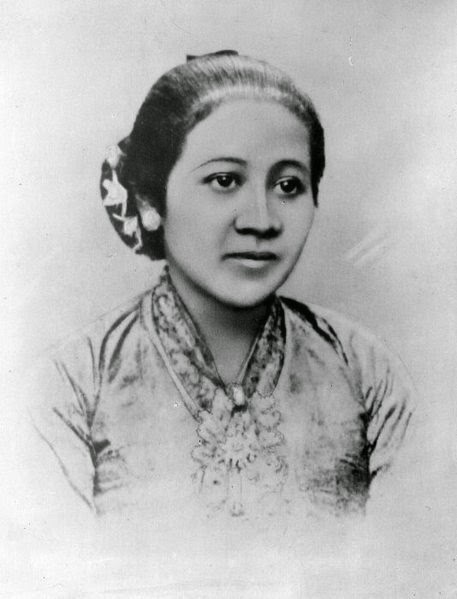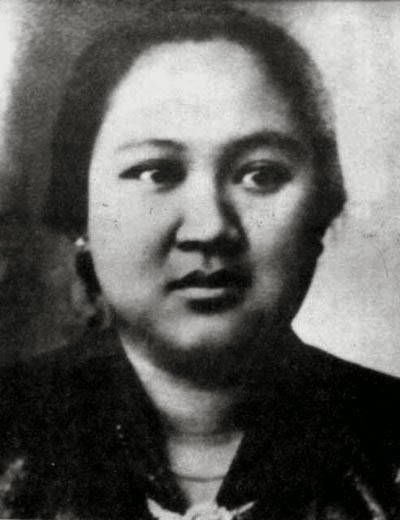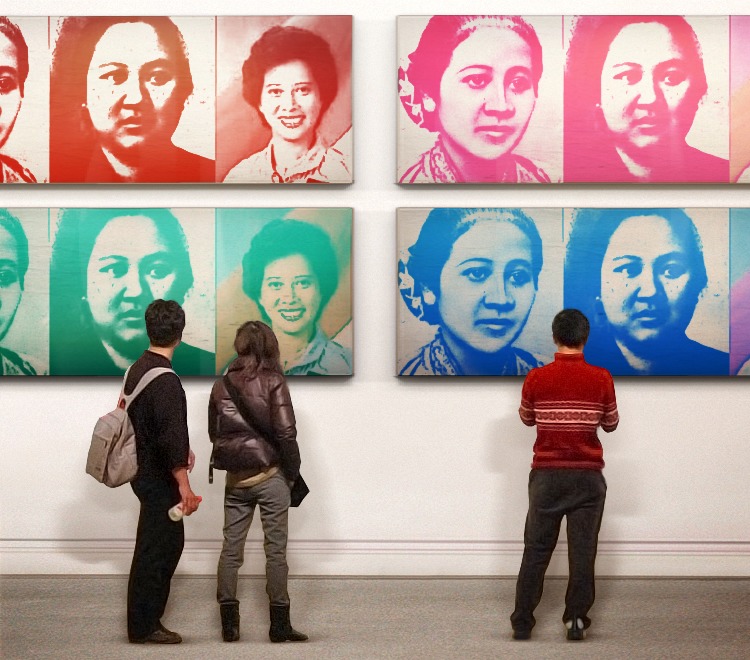Today, April 21, marks a very special day for the women of Indonesia: it’s Kartini Day, where little boys and girls get dressed up in traditional Indonesian garb to celebrate the birth and life of Raden Ajeng Kartini, whose name has become synonymous with the fight for gender equality in the archipelago.

Sadly, Kartini died at the age of 25, following complications that followed the birth of her first child – but it was her letters and personal writings that were posthumously compiled into a book that would eventually spur the modern feminist movement in Indonesia. The freedom to study and learn was a huge part of Kartini’s manifesto for women, and girls in Indonesia today are living out what once was a dream just 100 years ago.
Gender equality still has a long way to go in this country, but every time a girl chooses to go to school, a women’s rights activist gets her wings. Education is probably the single most effective weapon we can use to fight gender inequality, and today we salute two other remarkable Indonesian women who took the torch of education that Kartini lit and ran with it, inspiring new generations of girls to challenge the status quo.
But before you begin reading, here’s a link to Beyonce’s Run the World (Girls) to listen to while you power through this post. Here we go!
Raden Dewi Sartika (1884 – 1947)

If R.A. Kartini kindled the fire of women’s emancipation through education, then Raden Dewi Sartika was the renegade who was responsible for setting the goddamn forest ablaze. Born in Bandung to Sundanese priyayi (nobility) at the tail end of the 19th century, she was bound to be a rebel when her parents flipped a middle finger to the social conventions of the time by sending their daughter to a Dutch school. She came home after school only to play pretend-school with the compound servants’ children, where she role-played as the teacher and taught them how to read and write using rudimentary teaching tools, like coal and rooftop tiling (as you do in the 19th century).
That’s pretty punk rock and forward-thinking yo, considering education in late-19th century Java was in its infancy and had only just made itself available to children of the nobility and ruling class. Dewi Sartika dreamed of a more democratic system of education that catered to people of all social classes, and she was already putting her vision into motion by the time she was playing teacher as a ten-year-old.
Ten years old! What were you doing when you were ten years old? Probably not thinking about overthrowing a socio-economic praxis and schooling system that favored the colonialist patriarchy. No. You were thinking about Dragonball when you were ten years old, weren’t you?
It took a little bit of convincing, but with help of her supportive regency head uncle, she set up the Sakola Istri (literally “School Wife”) in 1904. The first twenty students of her Bandung-based school graduated following a curriculum that combined grade-level reading and artihmetic with home economics lessons that were expected of the women of the era, like sewing, cooking, and batik-ing. Enrollment numbers ballooned within the school’s first year of existence, and by 1912, Dewi Sartika had managed to establish nine schools.
Thanks to women like R.A. Kartini and Dewi Sartiki, girls in Indonesia inherited the right to an education; the next person in this post is someone who took that right to its atmospheric levels (literally).
Pratiwi Sudarmono (b. 1952)

Time to fast forward to the 20th century! Let’s set up the scene for you: it’s 1985. Ronald Reagan is serving his second term as US President, Gorbachev is leader of the Soviet Union, and you’re tuning into your favorite radio station, hoping Casey Kasem is getting ready to play Everybody Wants To Rule The World for the sixth time today.
Meanwhile in Indonesia, a scientist and all-around baller named Pratiwi Sudarmono has been selected (alongside backup engineer Taufik Akbar) to be the first Indonesian to fly into space; and then like the vodka-infused icing on a Bailey’s cake, Pratiwi was also going to be the first Southeast Asian woman to blast past the mesosphere.
Their mission was to launch into orbit Indonesian telecommunications satellite Palapa by hitching a ride on a NASA space shuttle called Columbia. Looking at her street cred, it’s easy to see why she was selected for the mission: she worked hard to earn a slew of university degrees by the age of 33, including a Master’s from the University of Indonesia in 1977, as well as a Ph.D in Genetic Engineering and Molecular Biology from the University of Osaka in 1984. Such university, many science, wow.

Pratiwi doing zero-g training with fellow Indonesian Taufik Akbar
Pratiwi was scheduled to deploy the Palapa after taking off from Earth on June 1986; but plans to make her the first sambal-eating woman in space were put on hold following the horrific January 1986 Challenger disaster, and then permanently scrapped when Indonesia was slammed headfirst into the 1997 economic crisis.
But did Pratiwi Sudarmono sulk in a corner and write bitter posts on Livejournal about her shoulda, coulda, woulda story? No, of course she didn’t. She’s not some pansy who wilts when the going gets tough: in 1994, she returned to the laboratory of one of her alma maters to spearhead the University of Indonesia’s Microbiology Department, where part of her research was dedicated to destroying typhoid and tubercolosis. Not content with killing tropical diseases, she’s also busy fronting Himpunan Karya Wanita, a cross-country co-op that educates and trains women who live in rural Indonesia.
You see? Education is just the gift that keeps on giving. I don’t think even Raden Dewi Sartika could have imagined an Indonesian woman being nominated to fly up into space in just under 40 years after her death. But Pratiwi Sudarmono’s barrier-breaking nomination happened 30 years ago – what do you think Indonesian women today have to show for since then?





Reader Interactions